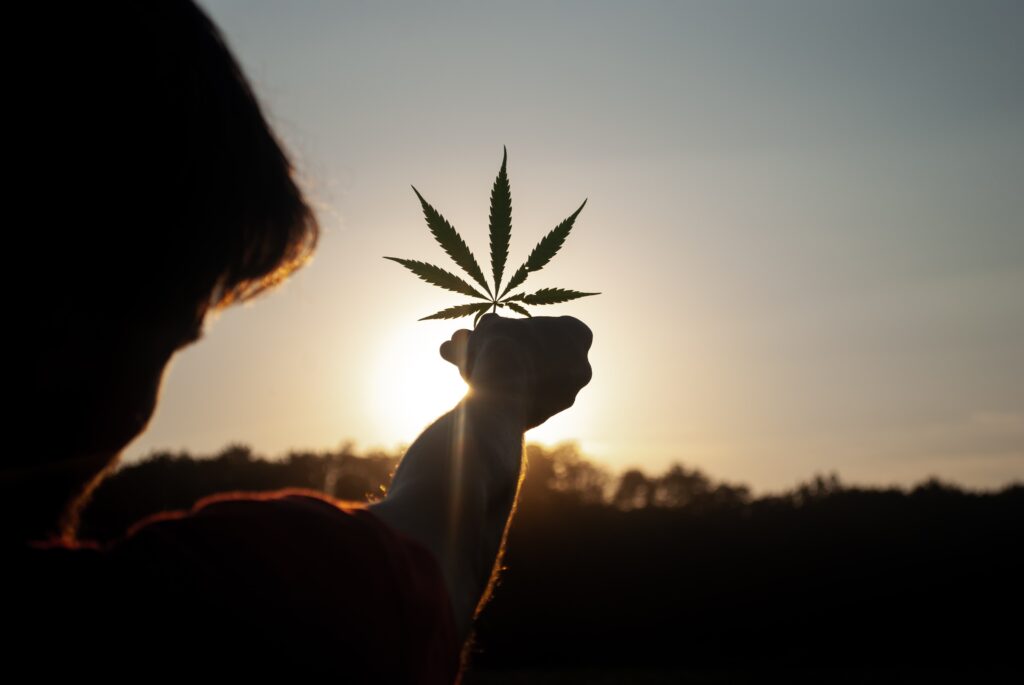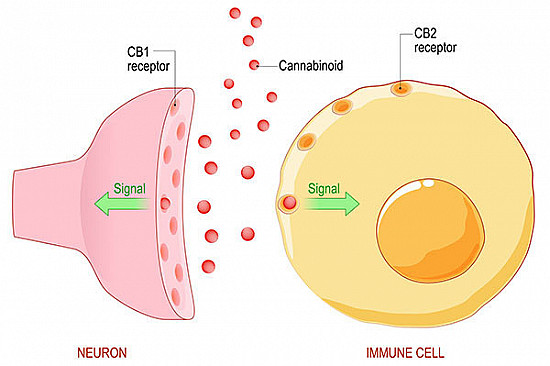Brief Overview of THC and its Variants
Tetrahydrocannabinol (THC) is a naturally occurring compound found in the cannabis plant. It is one of the primary cannabinoids responsible for the plant’s psychoactive effects. However, THC is not a singular entity, but rather a family of variants with slightly different chemical structures. Among these variants, Delta-8 THC and Delta-9 THC are gaining significant attention recently. While Delta-9 THC has been well-studied and is widely known for its intoxicating properties, Delta-8 THC is emerging as a milder alternative with potential therapeutic benefits. Understanding the distinctions between these two variants is crucial for consumers and medical professionals alike.
Growing Popularity of Delta-8 THC and its Benefits
In recent years, Delta-8 THC has experienced a surge in popularity, and for good reason. Users have reported that Delta-8 THC offers a more subtle and clear-headed “high” compared to Delta-9 THC. This makes it an attractive option for those seeking relaxation and relief without the intensity of a typical cannabis experience. Additionally, Delta-8 THC is believed to have potential therapeutic benefits similar to other cannabinoids, such as alleviating stress, reducing nausea, and promoting better sleep. As interest in Delta-8 THC continues to grow, researchers and consumers are eager to explore its full range of advantages.

The Need to Understand the Differences Between Delta-8 THC and Delta-9 THC
With the increasing popularity of Delta-8 THC products, it becomes essential to comprehend the contrasts between Delta-8 and Delta-9 THC. Both variants interact with the body’s endocannabinoid system, but their chemical structures and effects differ significantly. Being informed about these differences is crucial for making responsible and informed decisions about cannabis use. Moreover, as the legality of Delta-8 THC varies in different regions, understanding the distinctions can help users navigate the regulatory landscape and ensure they are compliant with local laws. This knowledge empowers consumers to choose the right products for their individual needs and avoid any potential misunderstandings or risks associated with THC consumption.
Understanding THC: A Primer – Definition and Origin of THC
Tetrahydrocannabinol (THC) is a chemical compound found in cannabis plants, belonging to a group of compounds known as cannabinoids. It was first isolated and identified in the 1960s by researchers exploring the effects of cannabis on the human body. THC is primarily synthesized in the trichomes, the small resinous glands on the surface of cannabis flowers and leaves. Its role is believed to be a natural defense mechanism for the plant, protecting it from pests and predators. THC is unique in its ability to interact with the endocannabinoid system in the human body, influencing various physiological processes.
Different Forms of THC in Cannabis Plants
Cannabis plants contain several forms of THC, each with distinct chemical structures and properties. The most abundant and well-known form is Delta-9 THC (Δ9-THC), which is responsible for the characteristic euphoria or “high” associated with cannabis use. Another variant gaining attention is Delta-8 THC (Δ8-THC), a less potent analog of Delta-9 THC with a slightly altered molecular structure. Additionally, cannabis plants may also contain THCa, the acidic form of THC, which converts to THC through decarboxylation, a process that occurs with heat exposure.

Psychoactive Effects and Potential Therapeutic Benefits
THC is renowned for its psychoactive effects, which primarily arise from its interaction with the CB1 receptors in the brain and central nervous system. These effects can include euphoria, altered perception, relaxation, and heightened sensory experiences. However, THC’s psychoactive properties are not the only aspect of interest. Research suggests that THC and its variants may have potential therapeutic benefits, including pain relief, anti-inflammatory effects, appetite stimulation, and potential antiemetic properties. Some medical conditions, such as chronic pain and certain forms of nausea, have been particularly responsive to THC-based treatments.
Legal Status of THC and its Variants
The legal status of THC and its variants varies significantly from one country or region to another. In many parts of the world, cannabis remains classified as a controlled substance, making THC products subject to strict regulations. Delta-9 THC, as the most potent psychoactive form, is often subject to more stringent laws compared to other cannabinoids. On the other hand, Delta-8 THC’s legal status may be less clear due to its relatively recent rise in popularity and ongoing discussions about its source and legality. As the understanding of cannabinoids and their effects continues to evolve, so do the laws and regulations governing their use and distribution. It is essential for consumers to stay informed about the legal status of THC and its variants in their respective locations to ensure compliance with local laws.

Delta-8 THC Explained – Chemical Structure and Properties of Delta-8 THC
Delta-8 THC (Δ8-THC) is a naturally occurring cannabinoid found in cannabis plants. It is structurally similar to Delta-9 THC (Δ9-THC), with a double bond in the eighth position instead of the ninth. This seemingly minor difference in molecular structure contributes to distinct properties and effects. Delta-8 THC interacts with the body’s endocannabinoid system, particularly the CB1 receptors, influencing various physiological processes. While Delta-8 THC’s affinity to these receptors is lower than that of Delta-9 THC, it still triggers psychoactive effects, albeit to a lesser extent. Additionally, Delta-8 THC is believed to exhibit potential therapeutic benefits, making it an intriguing subject of scientific research.
Sources of Delta-8 THC in Cannabis Plants
Delta-8 THC occurs naturally in cannabis plants, albeit in lower concentrations compared to Delta-9 THC. It is present as an intermediate compound in the biosynthetic pathway of THC. Delta-8 THC can be derived from either hemp or marijuana plants, as both contain the necessary precursor cannabinoid, cannabigerol (CBG). Through various extraction and isolation methods, Delta-8 THC can be concentrated and separated from other cannabinoids to produce products with higher Delta-8 THC content. However, due to its lower abundance in the plant, obtaining pure Delta-8 THC requires specialized processing techniques.
Similarities and Differences with Delta-9 THC
Delta-8 THC shares many similarities with Delta-9 THC in terms of chemical structure and how they interact with the endocannabinoid system. Both variants activate CB1 receptors, leading to similar but not identical psychoactive effects. However, Delta-8 THC is considered to be less potent than Delta-9 THC, meaning that its psychoactive effects are milder and more manageable for some individuals. While both cannabinoids may induce feelings of relaxation and euphoria, Delta-8 THC is less likely to cause anxiety or paranoia, making it an appealing option for those who may be sensitive to the stronger effects of Delta-9 THC.
Delta-8 THC’s Mild Psychoactive Effects and Potential Therapeutic Applications
Delta-8 THC is gaining attention for its unique combination of mild psychoactive effects and potential therapeutic applications. Users often describe the high from Delta-8 THC as clearer and more lucid, making it preferable for those seeking a more functional and less intense experience. Additionally, some preliminary research suggests that Delta-8 THC may offer therapeutic benefits similar to other cannabinoids, such as pain relief, anxiety reduction, and antiemetic effects. Its potential as an appetite stimulant has also been investigated in the context of aiding patients undergoing chemotherapy. However, it is important to note that further research is needed to fully understand and validate these potential therapeutic applications. As interest in Delta-8 THC grows, more comprehensive studies are likely to shed light on its various effects and medical benefits.

Delta-9 THC Explored – Chemical Structure and Properties of Delta-9 THC
Delta-9 THC (Δ9-THC) is the most abundant and well-known psychoactive cannabinoid found in cannabis plants. Its chemical structure includes a double bond in the ninth position of its carbon chain, which is responsible for its potent psychoactive effects. Delta-9 THC interacts with the endocannabinoid system, specifically binding with CB1 receptors in the brain and central nervous system. This interaction triggers a cascade of neurological responses that result in the characteristic feelings of euphoria, relaxation, altered perception, and other psychoactive effects commonly associated with cannabis consumption.
Predominance in Cannabis Strains and its Psychoactive Potency
Delta-9 THC is typically the most prevalent cannabinoid in most cannabis strains, especially those with higher THC content. The concentration of Delta-9 THC in a cannabis plant can significantly influence its psychoactive potency. Strains with high Delta-9 THC content are known for their strong intoxicating effects, and users should approach them with caution. The varying ratios of other cannabinoids, such as CBD, in cannabis strains can modulate the overall experience and may influence the intensity of Delta-9 THC’s psychoactive effects.
Medical Applications and Potential Adverse Effects
Delta-9 THC has been the subject of extensive research concerning its medical applications. It is widely recognized for its ability to provide relief from pain, nausea, and vomiting, making it valuable in palliative care and as an appetite stimulant for patients undergoing chemotherapy. However, its psychoactive nature can also lead to potential adverse effects, especially in higher doses or for individuals sensitive to its psychoactivity. Users may experience anxiety, paranoia, impaired cognitive function, and short-term memory issues. Therefore, proper dosing and responsible use are crucial to minimizing the risk of adverse effects while maximizing the therapeutic benefits.
Legal Implications and Restrictions Surrounding Delta-9 THC
The legal status of Delta-9 THC is a complex and evolving issue in many parts of the world. While some countries have legalized cannabis for medical or recreational purposes, others maintain strict regulations against its use. Delta-9 THC’s psychoactive nature is a significant factor in how it is regulated, with many regions imposing restrictions on its cultivation, distribution, and consumption. As laws and regulations surrounding cannabis continue to change, users must remain aware of the legal implications and restrictions in their respective locations to avoid any legal issues or consequences associated with Delta-9 THC consumption.

The Key Differences Between Delta-8 and Delta-9 THC – Molecular Structure and Variations
The key difference between Delta-8 THC and Delta-9 THC lies in their molecular structures. While both are cannabinoids found in cannabis plants, they have distinct chemical compositions. Delta-8 THC has a double bond in the eighth position of its carbon chain, whereas Delta-9 THC has the same double bond in the ninth position. This seemingly minor variation impacts how the cannabinoids interact with the body’s receptors and influences their overall effects on the endocannabinoid system. These structural differences are also responsible for the contrasting psychoactive potency and potential therapeutic applications of each variant.
Psychoactive Potency and Intensity of Effects
Delta-9 THC is renowned for its potent psychoactive effects and is responsible for the classic “high” associated with cannabis use. When consumed in higher amounts, it can induce strong euphoria, altered perception, and temporary cognitive impairment. On the other hand, Delta-8 THC is considered to be less psychoactive and has a milder impact on cognition and perception. Users often describe the high from Delta-8 THC as more clear-headed and less likely to induce anxiety or paranoia, making it an attractive option for those who want to experience the benefits of THC without the intensity associated with Delta-9 THC.

Interactions with the Endocannabinoid System
Both Delta-8 THC and Delta-9 THC interact with the endocannabinoid system, which regulates various physiological processes in the body. They primarily bind with CB1 receptors, found predominantly in the brain and central nervous system. However, due to their structural differences, the strength of their interactions with CB1 receptors varies. Delta-9 THC has a stronger affinity to CB1 receptors, leading to more robust psychoactive effects. In contrast, Delta-8 THC’s weaker affinity results in milder effects. Additionally, Delta-8 THC has been suggested to interact with CB2 receptors, which are more abundant in the peripheral tissues and immune system, potentially contributing to its unique therapeutic effects.
Potential Therapeutic Benefits of Both Variants
Both Delta-8 THC and Delta-9 THC exhibit potential therapeutic benefits, but their specific applications and efficacy may differ. Delta-9 THC has been extensively studied for its medical applications, particularly in pain management, nausea reduction, and appetite stimulation. It also holds promise for certain neurological conditions. Delta-8 THC, while less studied, is believed to offer similar benefits, especially in pain relief and antiemetic effects. However, its potential for anxiety reduction and overall milder psychoactivity may be particularly appealing to some users. As research on cannabinoids advances, a better understanding of their individual therapeutic properties and potential synergistic effects is likely to emerge.
The Legal Landscape of Delta-8 and Delta-9 THC – Federal and State Regulations on THC and its Variants
The legal status of Delta-8 and Delta-9 THC, along with other cannabis-related products, is subject to a complex web of federal and state regulations. In the United States, cannabis remains classified as a Schedule I controlled substance at the federal level, making it illegal for both recreational and medical use. However, individual states have enacted their own cannabis laws, leading to a patchwork of regulations where some states have legalized cannabis for medical or even recreational use. This legal dichotomy creates confusion and challenges for businesses and consumers alike, as they must navigate varying rules and restrictions on THC products depending on their location.
Gray Areas and Challenges in Interpreting the Law
The rapidly evolving cannabis industry has led to legal gray areas concerning the production, sale, and consumption of Delta-8 and Delta-9 THC products. One such area of contention is the source of Delta-8 THC. While some argue that it can be derived legally from hemp through the extraction of CBD and its conversion, others maintain that its production and sale may still fall under the scope of controlled substances. Additionally, some states have not explicitly addressed Delta-8 THC in their legislation, leaving consumers and businesses uncertain about its legal status. These uncertainties highlight the need for clear and comprehensive regulations to address novel cannabinoids and ensure consumer safety.
Consumer Awareness and Product Safety Concerns
The rising popularity of Delta-8 THC products has raised concerns about consumer awareness and safety. With varying degrees of legality across jurisdictions, consumers may unknowingly purchase products that do not meet quality and safety standards. The lack of consistent regulations may lead to inconsistent potency and impurities in Delta-8 THC products, potentially compromising consumer safety. Transparent labeling and third-party testing become essential factors in helping consumers make informed decisions about the products they choose. Education about the differences between Delta-8 and Delta-9 THC, along with potential risks and benefits, is vital to ensuring responsible use and minimizing potential adverse effects.
Potential Changes in Legislation and Their Implications
As the cannabis industry continues to grow and public perception evolves, legislation surrounding Delta-8 and Delta-9 THC is likely to change. Some states may clarify their stance on Delta-8 THC, either explicitly legalizing or restricting its production and sale. At the federal level, there might be ongoing discussions about the regulation of THC and its variants. Potential changes in legislation can have significant implications for manufacturers, retailers, and consumers. Clarity in the law is essential to create a well-regulated market that prioritizes consumer safety and fosters a thriving and responsible cannabis industry. It also ensures that consumers have access to reliable information and high-quality products while remaining compliant with applicable laws and regulations.
Safety and Side Effects – Known Side Effects of Delta-8 THC
Like all cannabinoids, Delta-8 THC is associated with potential side effects, although they are generally milder compared to Delta-9 THC. Common side effects may include dry mouth, red eyes, and increased appetite. Some individuals may experience slight drowsiness or changes in mood, but reports of anxiety or paranoia are less common with Delta-8 THC. However, individual reactions can vary, and it is essential for users to start with a low dosage and monitor their response to avoid any discomfort.
Known Side Effects of Delta-9 THC
Delta-9 THC, as the primary psychoactive cannabinoid in cannabis, is known for more pronounced side effects. These can include increased heart rate, bloodshot eyes, impaired memory and cognitive function, and potential anxiety or paranoia, especially in high doses or sensitive individuals. Short-term memory issues and altered perception of time are also common with Delta-9 THC. Users are advised to exercise caution, particularly if they are new to THC or have a history of mental health conditions.
Risk Factors and Precautions for Using Both Variants
Using either Delta-8 or Delta-9 THC comes with certain risk factors and precautions. While Delta-8 THC is considered less psychoactive, it is essential to understand that it can still impair cognitive function and motor skills. Users should avoid operating heavy machinery or driving while under the influence of either variant. Pregnant and nursing individuals, as well as those with a history of mental health issues, should consult their healthcare provider before using any THC products. Combining THC with alcohol or other drugs can also amplify its effects and increase potential risks. Responsible use, proper dosing, and adherence to product labeling are crucial for minimizing adverse effects.
The Importance of Product Quality and Purity
Product quality and purity are paramount when it comes to THC variants. Due to the lack of strict regulations, some Delta-8 THC products may be less reliable in terms of potency and purity. Ensuring that products are sourced from reputable manufacturers and undergo third-party testing can help verify their content and safety. High-quality products should adhere to strict manufacturing standards, free from harmful contaminants, and accurately labeled with THC content. Opting for reputable and transparent brands helps guarantee that consumers receive safe and consistent experiences with Delta-8 and Delta-9 THC products.
Medical and Therapeutic Applications of Delta-8 and Delta-9 THC – Overview of Potential Medical Uses for Both Variants
Delta-8 and Delta-9 THC hold significant promise for various medical applications. Both cannabinoids have been studied for their potential in pain management, especially in chronic conditions like arthritis or neuropathic pain. They may also aid in reducing nausea and stimulating appetite, making them valuable in supporting patients undergoing chemotherapy or experiencing appetite loss due to other medical conditions. Moreover, research suggests that THC variants could potentially alleviate symptoms associated with certain neurological disorders and offer anti-inflammatory benefits. As we delve deeper into the potential of these cannabinoids, more medical uses are likely to emerge, expanding the range of conditions they may help address.

Clinical Studies and Research on Their Efficacy
The medical potential of Delta-8 and Delta-9 THC has piqued the interest of researchers, leading to numerous clinical studies to investigate their efficacy. While Delta-9 THC has been studied extensively, Delta-8 THC research is still in its nascent stages. Early studies have shown promising results for both variants in managing pain and nausea, but more rigorous clinical trials are needed to establish their safety and efficacy conclusively. Ongoing research aims to provide more comprehensive insights into the therapeutic benefits of these cannabinoids, paving the way for evidence-based medical applications.
Areas Where One Variant Might Be More Beneficial Than the Other
While Delta-8 and Delta-9 THC share similarities, they also exhibit unique properties that could make one variant more suitable for specific medical needs than the other. For example, individuals sensitive to the intense psychoactive effects of Delta-9 THC may find Delta-8 THC more tolerable, especially in managing anxiety or pain without significant cognitive impairment. On the other hand, certain conditions might respond better to the stronger psychoactivity of Delta-9 THC, where immediate relief is critical. The choice between the two cannabinoids may depend on individual patient preferences, medical conditions, and their response to each variant’s effects.
Future Prospects and Ongoing Research
The future of Delta-8 and Delta-9 THC in medical applications appears promising as more research unfolds. As the legal landscape around cannabis continues to evolve, barriers to conducting research may lessen, allowing for more comprehensive clinical studies. Researchers aim to unlock the full potential of these cannabinoids and identify new areas of medical application. Additionally, advancements in targeted delivery methods, formulations, and dosing precision may further enhance the therapeutic value of these cannabinoids. The ongoing research and growing interest in cannabis-based treatments offer hope for an expanded array of safe and effective medical options in the future.

Consumer Trends and Market Growth – Rise in Popularity of Delta-8 THC Products
In recent times, Delta-8 THC products have experienced a remarkable surge in popularity among consumers. As awareness of this cannabinoid grows, so does the demand for products that contain Delta-8 THC. People are intrigued by the potential milder psychoactive effects of Delta-8 THC compared to its Delta-9 counterpart. Additionally, the reported therapeutic benefits, including pain relief and anxiety reduction, have further piqued the interest of wellness-oriented consumers seeking natural alternatives for their health and well-being.
Factors Contributing to the Demand for Delta-8 THC
Several factors contribute to the increasing demand for Delta-8 THC products. The rising acceptance and legalization of cannabis in various regions have led to more open conversations about cannabinoids. As consumers become more educated about the different variants of THC, they are seeking out alternatives that align with their preferences and needs. The accessibility of Delta-8 THC products in online marketplaces and brick-and-mortar stores also plays a crucial role in their popularity. Moreover, some individuals who may be hesitant to try Delta-9 THC due to its potent effects find Delta-8 THC to be a more approachable entry point into the world of cannabinoids.
Comparison of Delta-8 THC and Delta-9 THC Products
Delta-8 THC and Delta-9 THC products offer distinct experiences for consumers. Delta-8 THC products are often marketed for their potential to provide relaxation and mild euphoria without inducing the anxiety or paranoia sometimes associated with Delta-9 THC. Consumers looking for a more functional and clear-headed experience may gravitate toward Delta-8 THC. On the other hand, Delta-9 THC products cater to those seeking a more intense and psychoactive effect. Both variants have unique attributes, and consumers’ preferences may vary based on their desired outcomes and sensitivities.
Challenges and Opportunities in the Emerging Market
The emerging Delta-8 THC market presents both challenges and opportunities for businesses and consumers. The lack of consistent regulations and clear guidelines can lead to uncertainties in manufacturing, labeling, and product safety. This underscores the importance of companies adhering to quality standards, transparency, and third-party testing to build consumer trust. Additionally, market growth presents opportunities for innovation and product development, such as exploring novel delivery methods and formulating products that cater to specific consumer needs. Responsible marketing and educating consumers about the differences between Delta-8 and Delta-9 THC are crucial in fostering a sustainable and well-informed market. As the industry matures and research advances, the potential for Delta-8 THC and other cannabinoids to contribute positively to the well-being of consumers becomes increasingly promising.
Let’s wrap it up and see what we learned,
Recap of the Differences Between Delta-8 THC and Delta-9 THC
In conclusion, Delta-8 THC and Delta-9 THC are two distinct variants of tetrahydrocannabinol found in cannabis plants. Delta-8 THC has a double bond in the eighth position of its carbon chain, leading to milder psychoactive effects compared to the more potent and well-known Delta-9 THC, which has a double bond in the ninth position. While both cannabinoids interact with the endocannabinoid system and offer potential therapeutic benefits, they differ in their psychoactive potency and effects on consumers. Understanding these differences is essential for making informed choices about cannabis use and exploring their various applications in the context of health and wellness.

Importance of Understanding the Nuances of THC Variants
As the cannabis industry expands and new cannabinoids gain attention, understanding the nuances of THC variants becomes crucial for consumers, medical professionals, and policymakers alike. Knowledge about Delta-8 and Delta-9 THC empowers individuals to select products that align with their preferences, health needs, and legal compliance. By recognizing the variations in potency and potential effects, consumers can make responsible choices, ensuring a positive and safe experience with THC products. Additionally, informed understanding fosters a more comprehensive dialogue around cannabis, leading to better-informed decision-making and responsible use.
Future Prospects for Research and Legislation
The future of Delta-8 and Delta-9 THC holds exciting prospects for research and legislation. As interest in the therapeutic potential of cannabinoids grows, more studies are likely to explore the medical applications of both Delta-8 and Delta-9 THC. Rigorous clinical trials and research can provide valuable insights into their efficacy and safety, shaping their potential role in mainstream medicine. Simultaneously, lawmakers and regulators may continue to review and update cannabis-related legislation as the scientific understanding of cannabinoids progresses. Ensuring comprehensive and well-informed regulations is essential to promote consumer safety and support the responsible growth of the cannabis industry.
Final Thoughts on Responsible Use and Informed Decision-Making
As we navigate the world of THC variants, responsible use and informed decision-making are paramount. Consumers should approach cannabis products, whether Delta-8 or Delta-9 THC, with awareness and caution. Understanding individual sensitivities, dosing appropriately, and adhering to product labeling guidelines can help ensure a positive and safe experience. Seeking products from reputable sources that prioritize transparency and quality is equally important. Responsible use goes hand-in-hand with being mindful of local laws and regulations surrounding cannabis. By staying informed and practicing moderation, users can fully appreciate the potential benefits of THC while minimizing potential risks. As research continues and the cannabis landscape evolves, responsible use and informed decision-making remain the cornerstones of a thriving and responsible cannabis community.




0 Comments